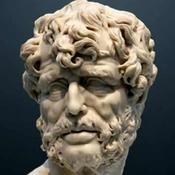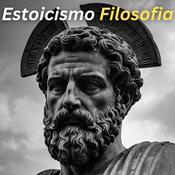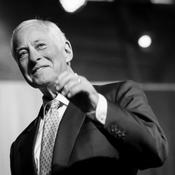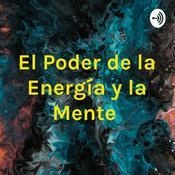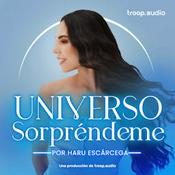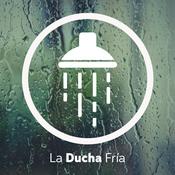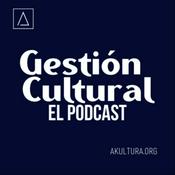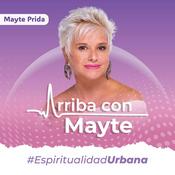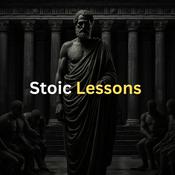78 episodios
- In episode 53, join Jamie Baxter of Exodus 90 and Bishop Erik Varden for a conversation all about filming Desert Fathers, what they learned, how the writings of the Desert Fathers have impacted them, and more.
__________
This January, take up the example of the Fathers and embrace a life of prayer, asceticism, and fraternity. Leave behind the pharaohs and idols that keep you enslaved and take up the journey to the promised land. Join tens of thousands of men from all around the world for the Exodus 90 Challenge. We start January 5th, 2026. Download the Exodus 90 app or visit exodus90.com to learn more.
Visit desertfathers.com to join our email newsletter for updates and reflections.
__________
We owe a special thanks to our partners. Desert Fathers with Bishop Erik Varden is...
• 🦉...written by Bishop Erik Varden. You can follow Bishop Varden on his blog
• 🎥 ...produced by EWTN
• 🧡...and brought to you by Exodus 90. Download the Exodus 90 app today!
________ - In the dark of night, while the monastery slept, St. Benedict kept vigil.
Standing at his window, he watched a light descend from heaven, brighter than the day itself.
And in that light, he saw something extraordinary.
For our final episode of Desert Fathers with Bishop Erik Varden, we stand with St. Benedict in this holy moment.
It’s been a blessing to walk on this journey with you.
__________
This January, take up the example of the Fathers and embrace a life of prayer, asceticism, and fraternity. Leave behind the pharaohs and idols that keep you enslaved and take up the journey to the promised land. Join tens of thousands of men from all around the world for the Exodus 90 Challenge. We start January 5th, 2026. Download the Exodus 90 app or visit exodus90.com to learn more.
Visit desertfathers.com to join our email newsletter for updates and reflections.
__________
We owe a special thanks to our partners. Desert Fathers with Bishop Erik Varden is...
• 🦉...written by Bishop Erik Varden. You can follow Bishop Varden on his blog
• 🎥 ...produced by EWTN
• 🧡...and brought to you by Exodus 90. Download the Exodus 90 app today!
________ - Imagine a voice that shakes the heavens. A light that makes you radiant from within.
That’s what St. Benedict wants us to experience.
This week, we hear about the divine thunder and deifying light that rouses us into the fullness of life.
God doesn’t just illuminate our path, He transforms us into His image.
Let’s reflect on what that means for you.
__________
This January, take up the example of the Fathers and embrace a life of prayer, asceticism, and fraternity. Leave behind the pharaohs and idols that keep you enslaved and take up the journey to the promised land. Join tens of thousands of men from all around the world for the Exodus 90 Challenge. We start January 5th, 2026. Download the Exodus 90 app or visit exodus90.com to learn more.
Visit desertfathers.com to join our email newsletter for updates and reflections.
__________
We owe a special thanks to our partners. Desert Fathers with Bishop Erik Varden is...
• 🦉...written by Bishop Erik Varden. You can follow Bishop Varden on his blog
• 🎥 ...produced by EWTN
• 🧡...and brought to you by Exodus 90. Download the Exodus 90 app today!
________ - St. Benedict saw the world differently.
Others pursued knowledge, pleasure, prestige. He wanted more.
Once he grew up and could make his own decisions, he sought only what would last: God.
In this week’s episode, we reflect on Benedict’s journey from worldly ease to holy freedom, and how his courage challenges us to ask: “What do I really want?”
__________
This January, take up the example of the Fathers and embrace a life of prayer, asceticism, and fraternity. Leave behind the pharaohs and idols that keep you enslaved and take up the journey to the promised land. Join tens of thousands of men from all around the world for the Exodus 90 Challenge. We start January 5th, 2026. Download the Exodus 90 app or visit exodus90.com to learn more.
Visit desertfathers.com to join our email newsletter for updates and reflections.
__________
We owe a special thanks to our partners. Desert Fathers with Bishop Erik Varden is...
• 🦉...written by Bishop Erik Varden. You can follow Bishop Varden on his blog
• 🎥 ...produced by EWTN
• 🧡...and brought to you by Exodus 90. Download the Exodus 90 app today! - Imagine a narrow cave. A little bell to signal a visitor. A rope lowered to bring food.
Alone, fasting, praying… Benedict spent three years here preparing for his sacred mission.
In this episode, we visit the very cave where Benedict emerged to give the world his “little rule for beginners.”
We’ll dive into the final chapter of Benedict’s Rule, reflecting on how he distills the desert fathers’ teachings for anyone seeking a life fully devoted to God.
__________
This January, take up the example of the Fathers and embrace a life of prayer, asceticism, and fraternity. Leave behind the pharaohs and idols that keep you enslaved and take up the journey to the promised land. Join tens of thousands of men from all around the world for the Exodus 90 Challenge. We start January 5th, 2026. Download the Exodus 90 app or visit exodus90.com to learn more.
Visit desertfathers.com to join our email newsletter for updates and reflections.
__________
We owe a special thanks to our partners. Desert Fathers with Bishop Erik Varden is...
• 🦉...written by Bishop Erik Varden. You can follow Bishop Varden on his blog
• 🎥 ...produced by EWTN
• 🧡...and brought to you by Exodus 90. Download the Exodus 90 app today!
________
Más podcasts de Educación
Podcasts a la moda de Educación
Acerca de Desert Fathers with Bishop Erik Varden
Modern life is like a desert—a parched and barren expanse where the soul thirsts for the living water Jesus promised at the well. Amid the ceaseless distractions and allurements of materialism, God can seem absent. As the Desert Fathers of old fled the noise of the world to seek God in silence, we too have been been called into the desert.
Guided by Bishop Erik Varden, this year-long series—beginning January 1, 2025—invites listeners to encounter the profound wisdom of the Desert Fathers. Drawing from their timeless Sayings, Bishop Varden illuminates the lives of figures like St. Anthony of Egypt, exploring themes such as purity, humility, self-mastery, and repentance. Through their struggles in the wilderness, these early Christians uncovered the transformative power of God’s grace—lessons as relevant today as they were in their time.
Though few of us are called to the monastic life, the spiritual combat of the Desert Fathers resonates with all who seek to follow Christ. As Jesus Himself entered the desert to confront temptation, their wisdom offers guidance for our own battles with distraction and despair, helping us find strength in prayer and discipline.
Bishop Erik Varden, a Cistercian monk and Bishop of Trondheim, Norway, is one of today’s leading Catholic voices. A convert to Catholicism during his studies at Cambridge, he was drawn to the monastic life, ultimately joining Mount St. Bernard Abbey in England, where he eventually became abbot. Through his writing and teaching, Bishop Varden speaks compellingly to a secular world, using the language of beauty to reveal the centrality of our search for God—even when we wander astray.
Join us as we step into the desert together, guided by the wisdom of the ancients, to rediscover the love of Christ that conquers all obstacles. Visit DesertFathers.com to learn more.
We owe a special thanks to our partners. The Desert Fathers with Bishop Erik Varden...
...written by Bishop Erik Varden. You can follow Bishop Varden on his blog, CoramFratribus.com
...produced by EWTN Global Catholic Network
...and brought to you by Exodus 90. Download the Exodus 90 app today and experience uncommon freedom in Jesus Christ with men from around the world.
Sitio web del podcastEscucha Desert Fathers with Bishop Erik Varden, LA MAGIA DEL CAOS con Aislinn Derbez y muchos más podcasts de todo el mundo con la aplicación de radio.net

Descarga la app gratuita: radio.net
- Añadir radios y podcasts a favoritos
- Transmisión por Wi-Fi y Bluetooth
- Carplay & Android Auto compatible
- Muchas otras funciones de la app
Descarga la app gratuita: radio.net
- Añadir radios y podcasts a favoritos
- Transmisión por Wi-Fi y Bluetooth
- Carplay & Android Auto compatible
- Muchas otras funciones de la app


Desert Fathers with Bishop Erik Varden
Escanea el código,
Descarga la app,
Escucha.
Descarga la app,
Escucha.





